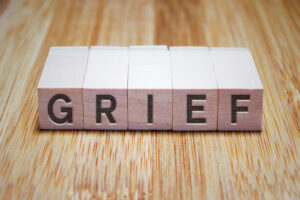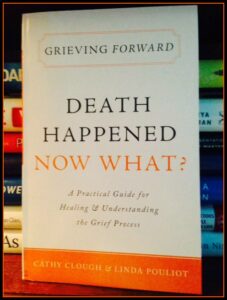What Is Grief?
What Is Grief?
Grief is something we don’t go looking for it just shows up. Grief is the internal response/experience of shock, pain, numbness… related to significant loss. And it’s the the normal, predictable, expected, and multifaceted, mind/brain, body, spirit reaction to significant loss. Either real, anticipated or ambiguous. Grief also shows up differently for each of us because while we’re all similar in many ways, we each have our own way of doing things—including grief. Which means that the level of intensity and duration of the grief experience is different for each of us. And doing grief differently is one of the reasons why grieving family members and friends drive each other nuts!
Grief Is Not Just An Emotional Experience
Additionally, something that is frequently overlooked is the fact that grief is not just an emotional experience. Grief also has physical, behavioral, cognitive, social, and spiritual dimensions. Which manifest, in part, as Normal Grief Reactions. Which is also why, for example, that many of us experience interruptions is our thinking, planning and decisions making abilities and why many of us feel grief as both emotional and physical pain. No need to wonder anymore why you’re exhausted!
Other Grief Triggers
We grieve all significant loss, not just the death of a loved one. Because significant loss can be triggered by something other than the death of a loved one. For example, significant loss can occur when we experience the loss of our job/career, change in financial state, empty nest, loss of friendship, divorce, loss of health, empty schedule, loss of trust, loss of safety, loss of control, loss of normality, loss of what could be, loss of connection… (The Blog Life Events That Can Trigger Grief has a more complete list.) This additional loss can also show up as secondary loss or secondary grief.
Secondary Loss/Secondary Grief
Secondary loss is the direct result of the initial loss. Which means, depending on the situation, it is possible for someone to have to process and navigate multiple types of secondary loss after the death of a loved one. For example, due to financial changes brought about by the death you may now have to sell your house and to also grieve the loss of your house. Or your loved one may have been your caregiver—you’re now without a caregiver and your grieving the loss of having no one to care for you.
Secondary loss may also show up as the additional burden of dealing with loss of connection with other family members who you no longer see… Important to note is that multiple types of significant loss can occur concurrently with the death of a loved one—triggering more Grief and Normal Grief Reactions for us to process and navigate.
Secondary loss or secondary grief is not less important, less painful or less intense or less difficult to grieve. In fact, sometimes, for someone, a secondary loss, a secondary grief, is more painful and difficult to grieve than the primary loss—even when the primary loss is the death of their loved one. This is what it and it’s nothing to feel guilty about.
What Grief Is Not
Grief by itself is not a sign of emotional or mental weakness or an indicator of mental or brain health issues or a sign of lack of faith. Even though the culture we find ourselves living in works really hard at marketing/suggesting otherwise—sometimes expecting, sometimes demanding, that we pretend that all is well, when all is not well.
When the fact of the matter is that pretending that all is well when all is not well—stuffing feelings—is not is not how healing happens. In her book, Cleaning Up Your Mental Mess 5 Simple, Scientifically Proven Steps to Reduce Anxiety, Stress and Toxic Thinking, Dr. Caroline Leaf shares the following:
“Not embracing your feelings doesn’t make them go away. If they don’t come out, they’ll go into your body, cells, DNA, and mind and will explode in volcanic mode at some point—there’s absolutely no getting away from this. Denying the existence of the emotions or thoughts is a defense mechanism that may help you avoid discomfort for a short period of time, but doesn’t promote healing and will ultimately take you to a breaking point.”
Healing Insight
While grief is a powerful experience. So is your ability to help yourself heal. Keep learning about what grief is, what grief does and how healing happens. This is all about your healing.
Healing Action Step
We wrote this book for you so that you don’t have to figure out and learn things the hard way like we did. Click on the book and order your copy.
End Notes
- Caroline Leaf, PhD, Cleaning Up Your Mental Mess 5 Simple, Scientifically Proven Steps to Reduce Anxiety, Stress and Toxic Thinking, Grand Rapids, MI, Baker Books a division of Baker Publishing, (2021) 173


